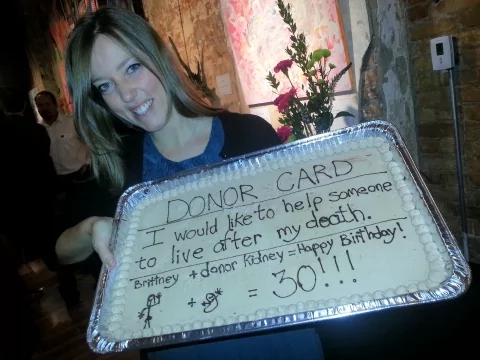What is Living Organ Donation?
Most organ donors help save lives after their death, but it’s possible to donate organs another way.

People who are living may give a kidney, a part of their liver or a lobe of their lung to someone on the organ transplant waiting list. This usually is someone they know, but the recipient may be a complete stranger. Donating an organ anonymously to the best medical match is often referred to as altruistic living donation.
Living donation dates back to the 1950s. Potential donors are carefully screened for possible risks during surgery and later in life. Those who qualify typically are able to live healthy and long lives. Types of living organ donation include:
The Benefits of Organ Donation
According to organdonor.gov, living organ donation begins with the evaluation of potential donors by a transplant center. Transplant staff weigh the risks of a living transplant and ensure the potential donor is a good candidate. The transplant center makes sure the potential donor is in good mental and physical health before proceeding.
Surgery is scheduled once the living donor has made an informed and final decision and has been established as a match for the recipient. The recovery process differs among living donors and depends on the specific organ donation taking place.
Many living donors consider their Gift of Life to another person to be a rewarding, enriching part of their own lives. Donating a kidney or lobe of liver does not usually affect the long-term health of the donor.
Who Pays for Living Organ Donation?
The American Transplant Foundation states that the recipient’s Medicare or private health insurance will generally cover certain aspects of the living organ donation. It is illegal for a donor to be paid for donating an organ.
However, the National Organ Transplant Act allows organ recipients to pay for their living donors’ travel and housing in connection with the donation. There are nonprofit organizations that may be able to help with indirect expenses related to donating an organ, such as transportation, lodging and food.
For more information on living organ donation, please go to the Transplant Living website or contact the hospital transplant center working with the friend or loved one you wish to help.




